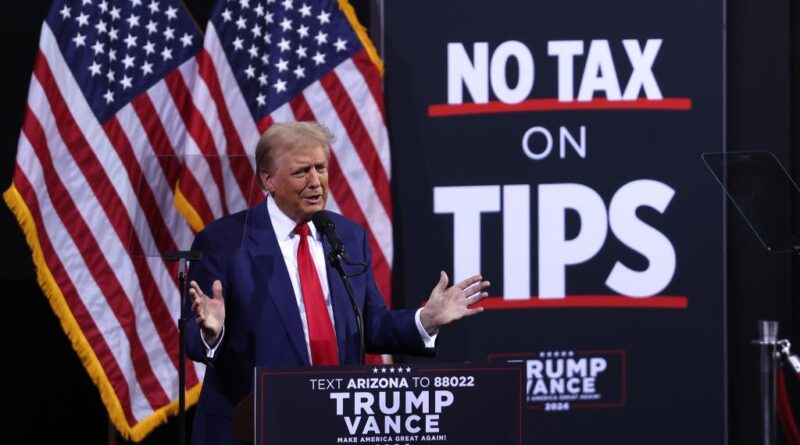Gig workers face price hikes. Here’s how Trump can offer support and gain swing state support.
Donald Trump recognizes that taxation is equivalent to theft, and he has put forth some innovative ideas to alleviate the burden on hard-working individuals through aggressive tax relief.
The idea of eliminating taxes on tips has gained widespread support, with even Kamala Harris endorsing the proposal. This demonstrates Trump’s keen grasp of sound policy decisions that are unconventional for conservatives but align with his personal brand.
Last week, the former president scored another win by advocating for tax relief for working people.
“No taxes on overtime! The individuals who put in extra hours are some of the most hardworking citizens in our country,” Trump stated. “It’s time for these individuals to receive some relief, and that’s exactly what we are doing because this is a crucial step.”
Anyone who has worked additional shifts knows how beneficial this relief can be.
However, these proposals overlook another group of hardworking citizens in our country: Uber drivers, DoorDashers, and freelance professionals who work tirelessly without many benefits.
These individuals do not receive overtime pay and often do not receive tips. Yet, they are still required to pay the full amount for Medicare and Social Security, with their earnings continuously losing value. This situation can lead to financial hardship and potential insolvency.
There is a strong argument for providing tax relief to the 1099 workers to achieve economic justice. Implementing measures such as reducing their tax burden or introducing a “freelancer’s credit” can support those who work independently outside of traditional employment structures.
Similar to Trump’s other tax proposals, there are political advantages to extending this relief to individuals in swing states.

From urban areas like Atlanta, to tech hubs in Raleigh and Charlotte, to bustling cities like Philly, Pittsburgh, Phoenix, Las Vegas, Minneapolis, and Milwaukee, many individuals have been left behind due to the rise of automation and corporate shifts, pushing them into gig work amid declining wages.
As a result, living costs have soared. The government, which enabled the devaluation of labor, owes gig workers and freelancers the same support provided to other economically disadvantaged groups through tax policies.
Trump’s initiatives to eliminate taxes on overtime and tips highlight the injustice faced by individuals who go above and beyond for companies that fail to reciprocate. Extending a tax break to freelancers would serve a similar purpose.
This relief would allow freelancers to make critical financial decisions without sacrificing essential needs due to budget constraints. It would offer them a sense of stability in an economy that increasingly relies on their services while minimizing their financial security.
Trump’s proposal could significantly impact a crucial group of voters in battleground states and beyond: gig workers who may not find relevant economic solutions from other political figures but could see potential benefits from Trump’s tax reforms.
Liberating freelancers makes political sense, providing Trump with an opportunity to advocate for meaningful tax changes and potentially attracting a sizable number of voters in critical states where small demographic shifts can influence election outcomes.



